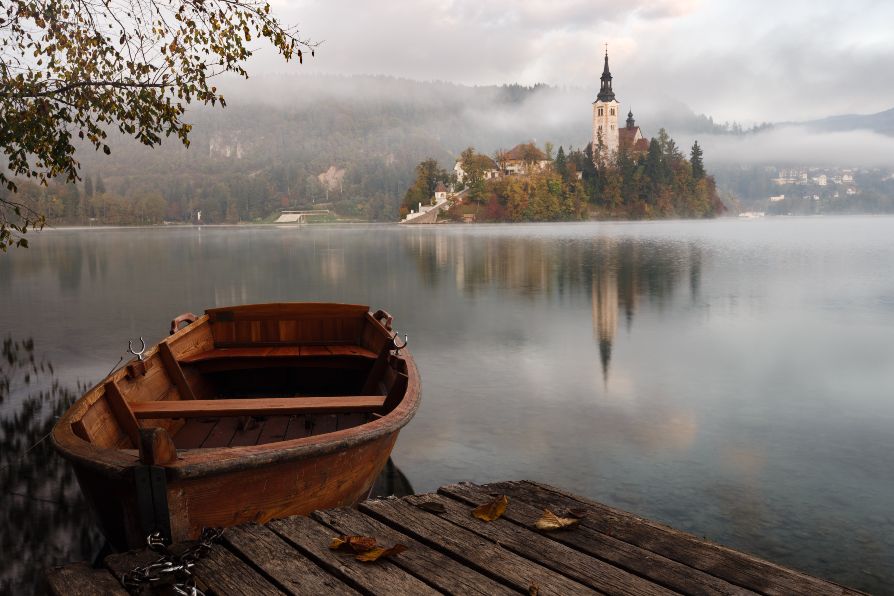Last update: September 30th, 2021.
Slovenia joined the EU Digital COVID Certificate rollout on July 1st and has been part of the free travel movement sweeping Europe.
Slovenians breathed a sigh of relief as the government announced the end of the epidemic on June 15th, since the epidemiological situation in the country seemed stable and safe.
As the Delta variant spread across Europe, this changed in August and the government has since tightened restrictions once more.
How to get the Slovenian vaccine passport
Certificates can be downloaded through the zVem digital health portal. The portal has also recently been made available as a mobile application.
The Slovenian COVID app will allow certificate holders to safely download and store their certificates on their smartphones. It will be available in both English and Slovenian.
After tests or inoculations, citizens can also request the certificate at testing and vaccination centers, or request a physical printout at certain pharmacies for a small fee.
The certificate will only display basic information like an individual’s name, date of birth, the date of issue, and the date and type of vaccination.
The Minister of Health, Janez Poklukar, has urged Slovenians to continue signing up for vaccinations and following social distancing guidelines.
“Let’s join forces to get vaccinated. For our common well-being and to the benefit of all. Stay well, Slovenia,” said Poklukar.
COVID certificate regulations in Slovenia
Citizens in Slovenia have protested vaccine and mask mandates, but the government has continued to implement stricter measures.
Despite the outrage, vaccine uptake has surged, especially with Johnson& Johnson as it only requires one dose.
All government employees must receive one vaccine dose before October 1st, and a second dose within the next month.
Previously, Slovenian workers could enter places of business with negative PCR tests, but this will no longer be the case.
In September, the Slovenian government made it mandatory to display a COVID passport to enter restaurants, hospitals, gas stations, shopping centers, and various other public places.
Masks are mandated for all people indoors and outdoors, when a safe distance cannot be maintained. School pupils will also have to wear masks indoors.
Slovenia travel restrictions
Slovenia has relaxed travel restrictions for incoming visitors from all countries on July 15th. As of August 30th, transit through the country is prohibited if travelers are not fully vaccinated.
Most countries in the EU are only accepting people who have received EMA-approved vaccines. But like its neighbor Hungary, Slovenia is accepting vaccines included in the WHO emergency list.
Slovenia is accepting the Russian, Chinese, and Indian vaccines with varying restrictions on the wait between vaccination and entry into the country.
COVID Certificates from third countries are also accepted as long as they are presented in English and feature a QR code that is compatible with the EU system.
Non-essential travel to Slovenia is allowed from the following countries (outside the EU) with proof of vaccination, recovery, or a negative PCR test:
- Albania
- Armenia
- Australia
- Azerbaijan
- Bosnia and Herzegovina
- Brunei
- Canada
- Israel
- Japan
- Jordan
- Lebanon
- Montenegro
- New Zealand
- Qatar
- Kosovo
- Moldova
- North Macedonia
- Saudi Arabia
- Serbia
- Singapore
- South Korea
- Ukraine
- United States of America
- Hong Kong
- Macao
- Taiwan
Travelers who do not comply with any of the above categories will need to enter 10 days of self-isolation. They can finish isolation sooner if a test on the 5th day proves to be negative.
COVID-19: Is it safe to travel to Slovenia now?
Slovenia’s worst wave of COVID came during the winter months, but the numbers were brought under control by June.
By mid-July, less than 100 new cases per day were being reported, but steadily increased again as a fourth wave hit in August.
On September 29th, 1,339 new cases were reported. This brought the total number of COVID-19 cases in Slovenia to 292,333.
Slovenia’s vaccine rollout took off significantly in April 2021.
Over 1,600,000 doses have been given by mid-July and over 35% of the Slovenian population is fully vaccinated.
Since then, uptake has slowed down and only 10% more Slovenians have been fully vaccinated in the following 2 months.
